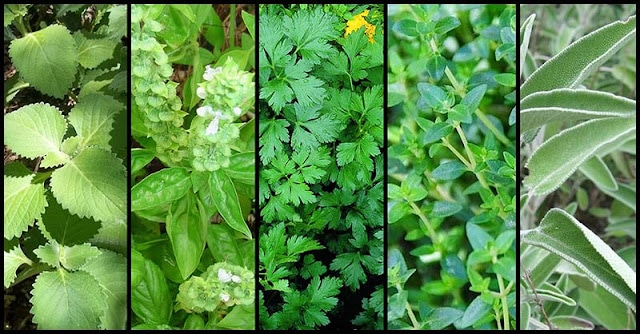Herbs have different health-promoting compounds. They are rich in anti-inflammatory, antioxidant, carminative, and antiseptic properties. Aside from the unique flavor they add to different dishes, they can help treat many illnesses and health problems.
Luckily, you can grow your own herbs in your backyard. By doing this, you can have fresh, organic herb whenever you need them.
Herbs That Can Easily Grow In Your Backyard
Oregano
Oregano can give signature flavor to a variety of dishes. This herb is rich in fiber, iron, vitamins A, C, E, and K, niacin, zinc, magnesium, calcium, manganese, and omega-3 fatty acids. Aside from this, it also has carminative, diuretic, diaphoretic, antioxidant, anti-inflammatory, and expectorant properties.
Oregano needs well-drained soil. You can grow it in containers or raised beds. Use oregano in treating muscle pain, toothaches, bloating, dandruff, bronchitis, asthma, common colds, fever, menstrual cramps, sore throat, fatigue, and headaches.
Parsley
Parsley is one of the best options when it comes to taste. This herb easily grows in damp, well-drained soil and partial shade.
This herb is rich in folic acid, vitamins A, C, B-12, and K, antioxidants, flavonoids, and volatile oils. Many people have been using parsley for fresher breath and against coughs, asthma, gas, indigestion, urinary tract infections (UTIs), kidney stones, high blood pressure, diabetes, and osteoarthritis.
Thyme
Thyme is rich in vitamins A and C, copper, fiber, iron, and manganese. It also has antibacterial, expectorant, antioxidant, and antiseptic properties.
Grow this herb in dry, well-drained light soil with enough sunlight. It can treat a sore throat, indigestion, gas, acne, arthritis, bronchitis, coughs, mild diarrhea, infected toenails, and congestion.
Rosemary
Rosemary grows best in well-drained, sandy or gravelly soil and prefers neutral to alkaline conditions
This aromatic herb is rich in vitamin B 6, calcium, iron, essential fatty acids, phytonutrients, astringent, diaphoretic, antioxidants, anti-inflammatory, anti-allergenic, diaphoretic, and stimulant properties.
It is useful in treating indigestion, neuralgic conditions, gout, muscle pain, rheumatism, dandruff, premature baldness, colds, depression, and headaches.
Sage
Sage must be grown in a well-drained, fertile soil where there is enough sunlight.
This culinary herb contains flavonoids, volatile oil, and vitamins A and K as well as anti-inflammatory, anti-microbial, anti-hypertensive, and anti-diabetic properties.
Sage can rescue you from different health problems such as excessive sweating, gum disease (gingivitis), stomach pain, gas, painful periods, asthma, loss of appetite, heartburn, depression, and cold sores.
Basil
Basil can easily be grown in your kitchen garden. Simply sow its seeds on a warm, sunny place. Provide water on a regular basis to retain the soil’s moisture. Because basil is very sensitive to cold you can cover it with a sheet or keep it indoors.
Basil is rich in nutrients like manganese, copper, magnesium, vitamin A, C, and K, iron, and omega-3 fatty acids. This herb can be used in treating coughs, headaches, cuts, scrapes, lack of appetite, kidney stones, flatulence, and many other ailments.
Mint
Mint is rich in vitamins like A and C and contains iron and manganese. Aside from this, it also has anti-inflammatory, diaphoretic (induces perspiration), antioxidant, expectorant (promotes the clearance of mucus from the airways), and antiseptic properties.
You can grow this herb in moist, shaded areas as well as in sunny locations. And because they grow vigorously, grow the plant in large sunken pots.
Mint can be used in treating health issues related to abdominal pain, irritable bowel, bad breath, headaches, indigestion, fever, and sore muscles.









